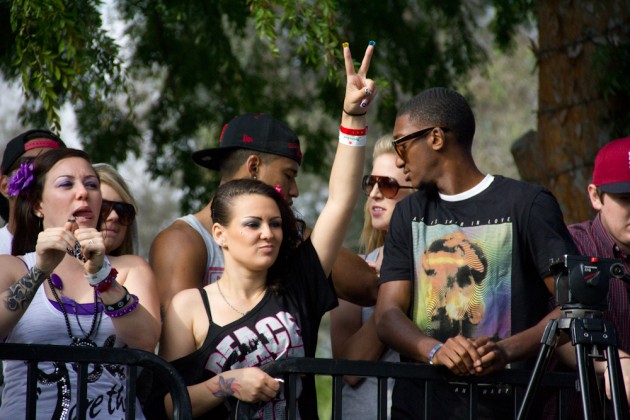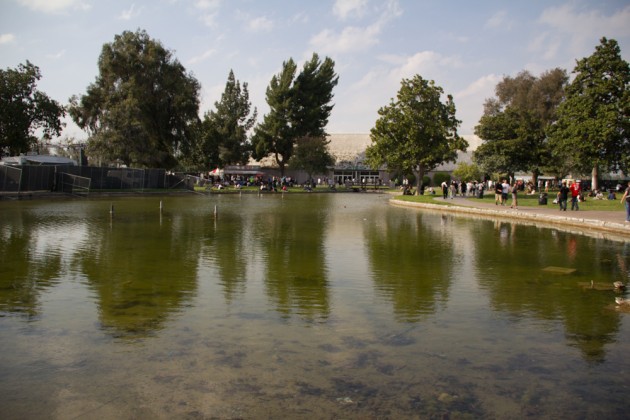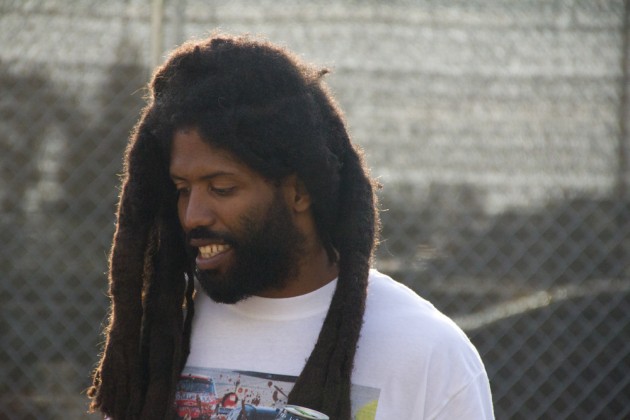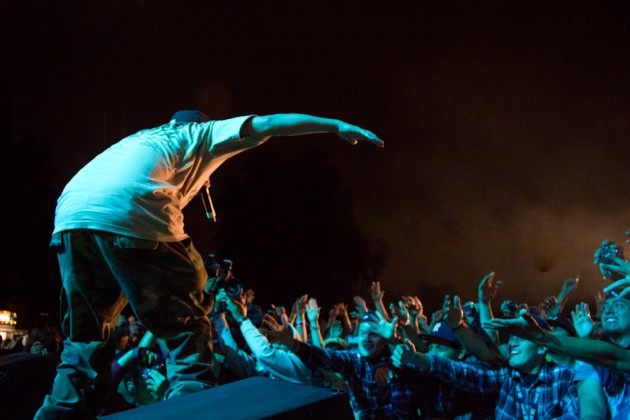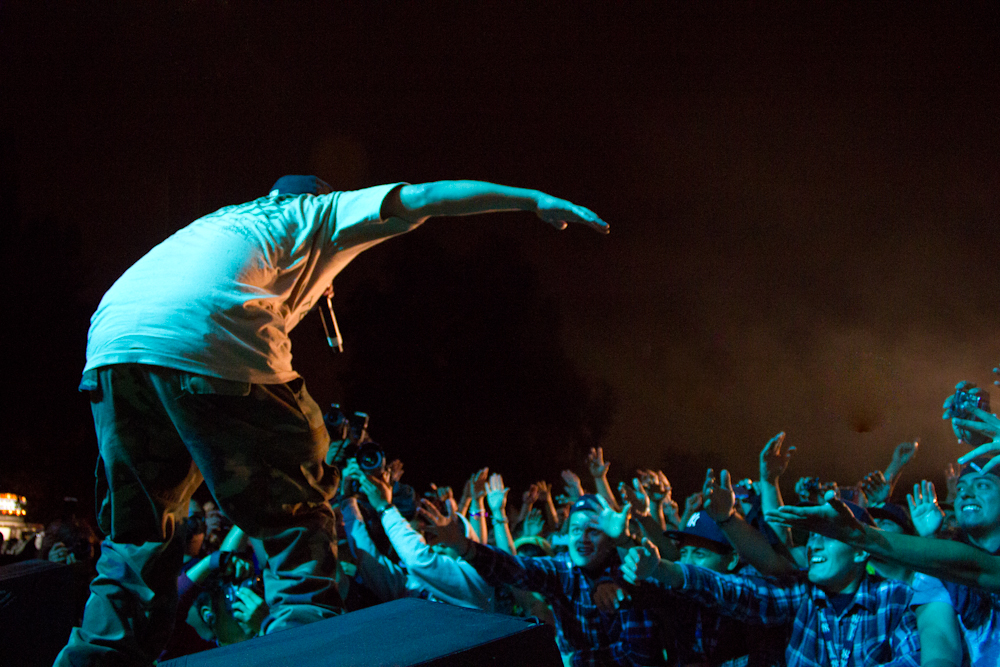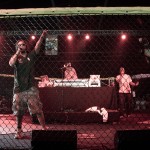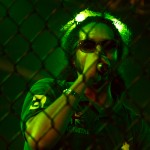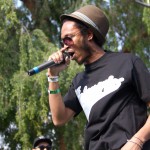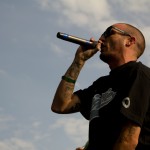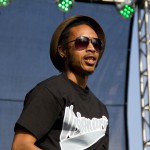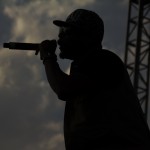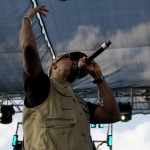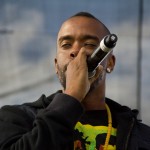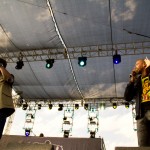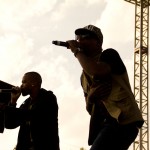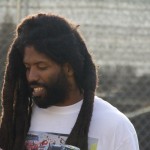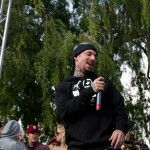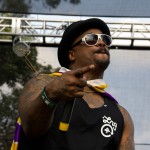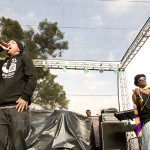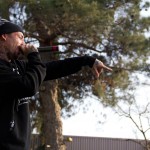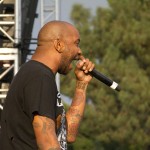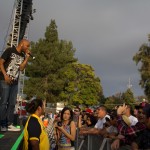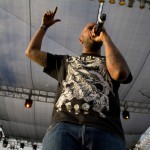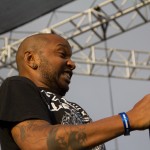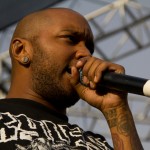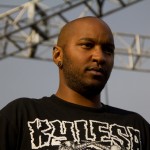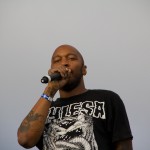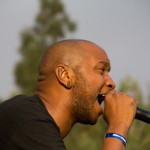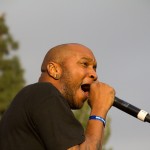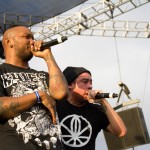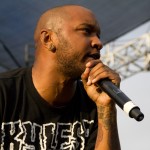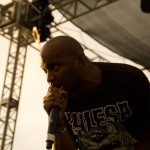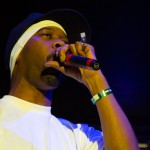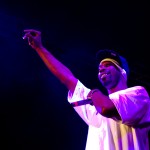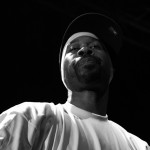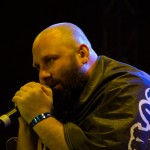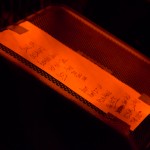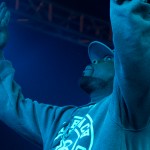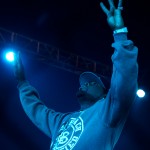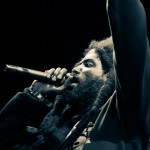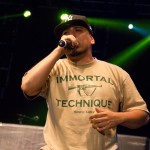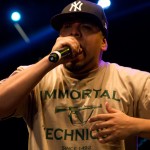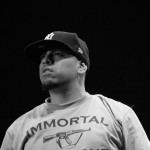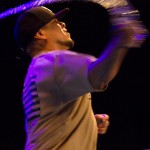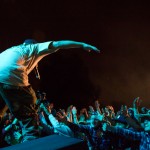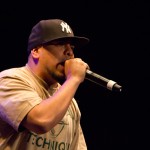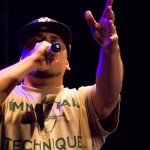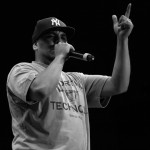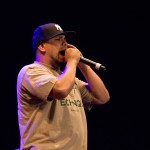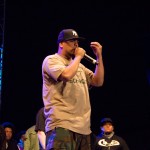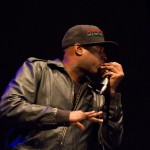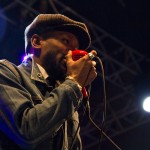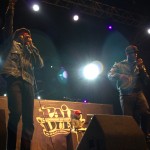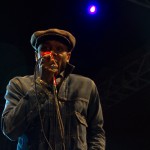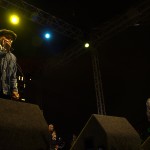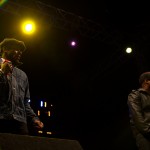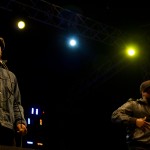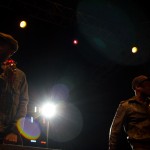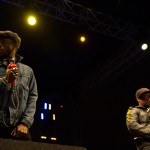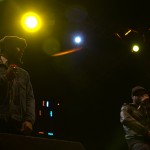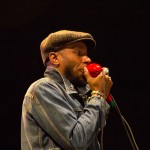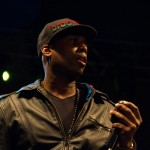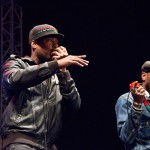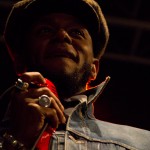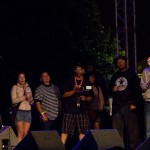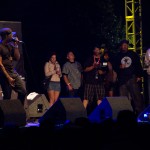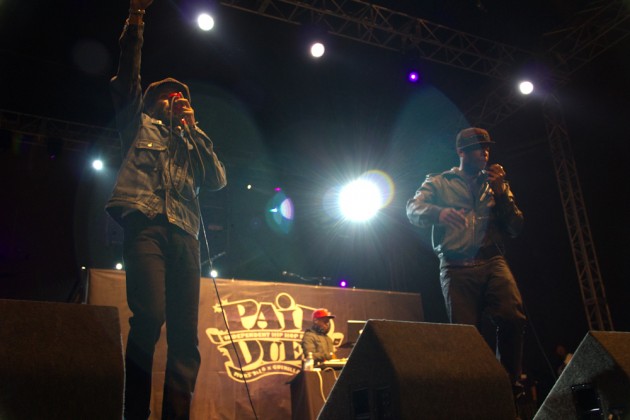
All photos by Philip Cosores
For those who regularly attend hip-hop events, you know how these things go, but for those who don’t, there are some things you’ve gotta understand about the typical order of operations, at least at all the major fests – Rock the Bells or Cypress Hill Smokeout, as examples – that I’ve frequented for the past few years: 1) sets tend to run 20-30 minutes late 2) artists are prone to cancellation and 3) you rarely hear all your favorite tracks, and if you do, you’re likely to get snippets mixed into a medley, not the full versions. So, in short, don’t get your knickers in a twist if you get knocked with a few disappointments.
That said, this year’s edition of the Paid Dues Independent Hip-Hop festival, held (like its afformentioned, Guerilla Union- run counterparts) at San Bernardino’s NOS Events Center on April 2, was anything but typical with regard to how it all panned out. In fact, the daylong event may very well be the smoothest-run hip-hop event I’ve ever had the pleasure of partaking in.
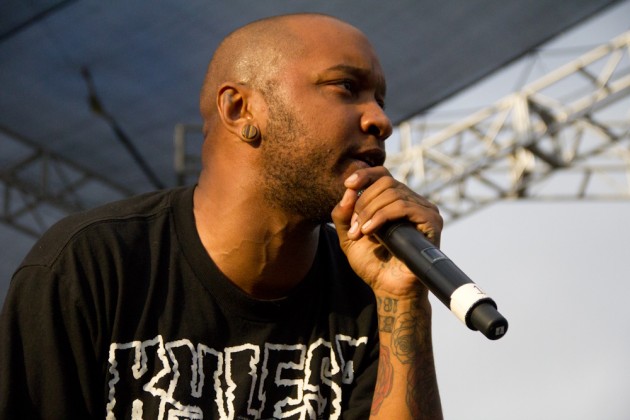
Just imagine the scene: clear skies, mild temperatures, a tame (but manageable, and therefore content) crowd,
and sets – from the likes of hip-hop heavyweights like Dead Prez, Bun B, Sage Francis and the day’s headliner, Black Star – running 15-20 minutes early. Huzzah!
With such prime conditions, every attendee was in high spirits – no quarreling, no whining – for early sets from from Hieroglyphics’ Opio (featuring a surprise appearance from fellow crewman, Pep Love), Living Legends’ fast-flowing Eligh and a rare appearance of the entire Visionaries crew, which was pre-empted by an unexpected treat: a brief, funk-tinged spin-sesh from former Jurassic 5 member, DJ Nu-Mark.
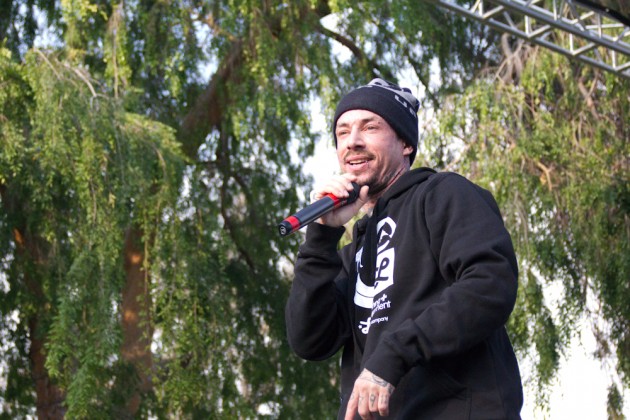
The event abounded with standout moments, such as Sage Francis’ dedication of his entire set to the late emcee, Eyedea (of Eyedea & Abilities), a carefree, mini-party on the second stage with the fest’s co-producer, Murs (of Living Legends), and the uncommon performance of what is arguably Immortal Technique’s lyrical masterpiece, the daunting “Dance With the Devil.”
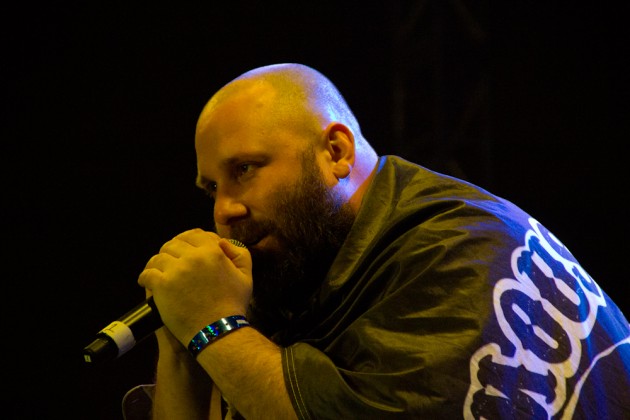
Yet, it was the occasional unwarranted occurrence – Nu-Mark’s appearance, Tech’s unscheduled collaboration with oldschool New York legend (and one of his self-proclaimed mentors) Chino XL, a fearsome round of raps by up-and-comers, Slaughterhouse, from within a chain-linked cage arena, no less – that spoke volumes about Paid Dues’ overarching ideal. Without a completely stacked lineup (weak points included overindulgent and mostly monotonous sets from Lil B the Based God, and Rawth, a collaboration from rappers Asher Roth and Nottz), the festival was hardly conceived for the occasional hip-hop listener; rather, Paid Dues, this time around, was reserved for the true hip-hop heads – artists included – whose goal (splendidly actualized, I’d say) was to cultivate a community of supporters that respects the genre’s history as much as its entertainment value.
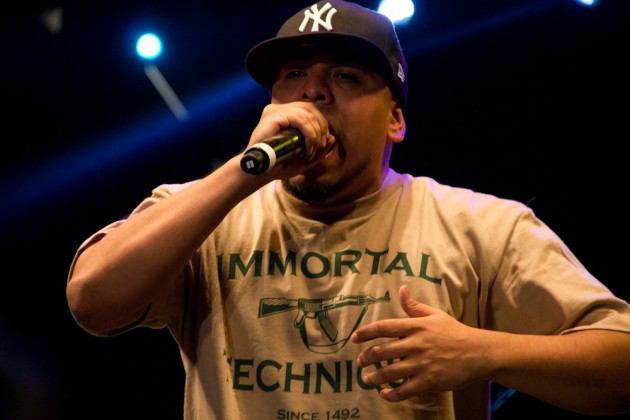
No performance underscored that mission more, as one might expect, than Black Star’s headlining finale, which reached all the way back to plentiful cuts from the rap duo’s one-time, 1998 release, Mos Def & Talib Kweli Are Black Star, while drawing liberally, later in the set, from each artist’s recent solo efforts – Mos Def’s The Ecstatic (2009) and Kweli’s January release, Gutter Rainbows.
At nearly the same moment that the set commenced with one of the group’s definitive anthems, “Astronomy (8th Light),” a cool mist began emitting from the now darkened San Bernardino sky, further underscoring the momentousness of this one-off reunion as thousands chanted in unison, “Run up on ’em with the heaters/ everybody followin’ with no leaders/ feelin’ like we killin’ ourselves/ because I know they can’t defeat us.” The lyrical themes here – which also ran through tracks performed this night such as the anti-violence banger “Definition,” the East-Coast-West-Coast beef critique “Children’s Story,” and the J Dilla-produced Ecstatic track, “History” – spell out Black Star’s overriding purpose, relevant now as much as it was in the late 90s: to usher in a new era of black culture, and moreso than that, to command all those passionate about hip-hop to memorialize its history, albeit moving past the chaotic adversity, by drawing on the power of the music’s potential for positive influence.
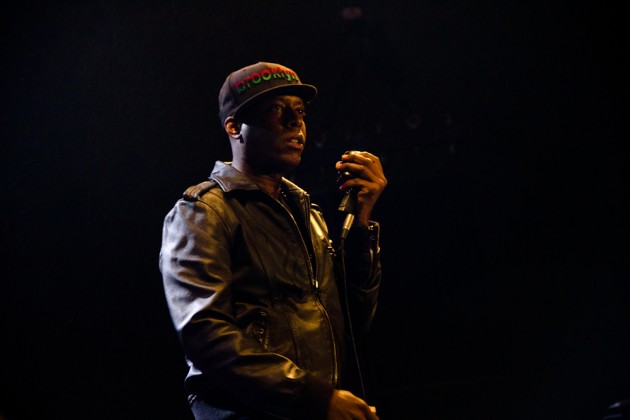
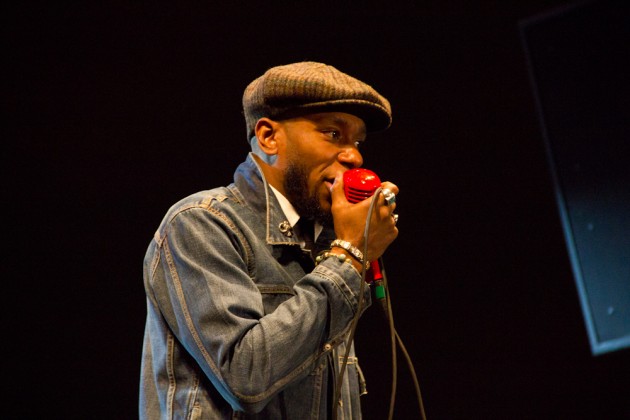
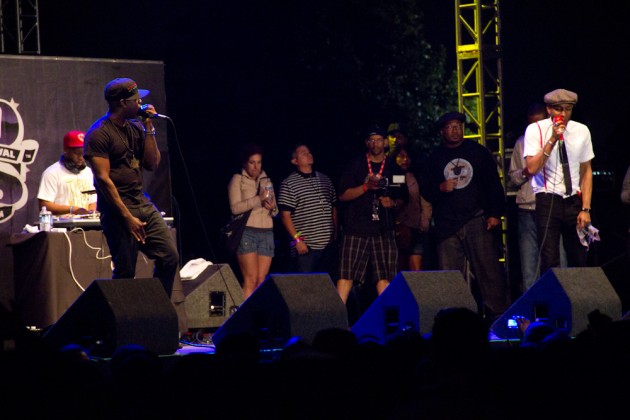
It’s an admirable aspiration, especially as hip-hop culture becomes more diverse – racially, ethnically, stylistically. Still, not everyone is on the same page (take OFWGKTA, exploiting themes of gun violence, rape and drug use to rally its crowds), but at least there are a few instances, like this seamlessly executed edition of Paid Dues, where hip-hop’s progress is rooted in peace.
